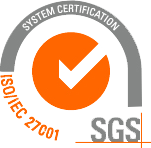SKC
-
CCorporation
 A leading company that strive for the world’s best.
A leading company that strive for the world’s best.
-
CCreation
 Global ESG material solutions company
Global ESG material solutions company
-
CCommunication
 SKC is making efforts to create a better future for all of our partners.
SKC is making efforts to create a better future for all of our partners.
-
CCareer
 SKC is making efforts to create a better future for all of our partners.
SKC is making efforts to create a better future for all of our partners.
A DPG-only production facility finished construction at Ulsan plant on November 28 with an annual production capacity of 30,000 tons, consecutively proving that SK picglobal is capable of becoming the first in the world on this technology.
SK picglobal evolves into a care materials company to increase people’s quality of life and promote safety and eco-friendliness.
SKC speeds up the transformation of its chemical business into ESG materials business, and enhances the three pillars of growth: rechargeable batteries, semiconductors and eco-friendly materials.
SK picglobal, a chemical business invested by SKC (President: Woncheol Park), commercializes a DPG-only process that is dedicated to an exclusive production of dipropylene glycol (DPG) products that are high value-added, eco-friendly materials.
On November 28, SK picglobal held a ribbon-cutting ceremony at Ulsan plant for the DPG-only production facility with an annual production capacity of 30,000 tons. While DPG has been produced only through co-production in the past, SK picglobal became the first in the world to successfully commercialize this DPG-only production. The ribbon-cutting ceremony was attended by more than 100 key people from SKC and political sphere including President Woncheol Park of SKC, President Kidon Won of SK picglobal, Ulsan City Mayor Doo-gyeom Kim and Director General for the Materials, Parts and Equipment Cooperation Gyeong-ho Lee of the Ministry of Trade, Industry and Energy.
Propylene glycol, PG, is characterized by its moisturization and fragrance-binding properties, and is an eco-friendly, high value-added material used for various purposes including food, beverages and pharmaceuticals. DPG, in particular, is used as a raw material for cosmetics, personal care, perfume, etc., and has the highest added value among various PG product groups. Along with the improvement in living standards, the demand for DPG is also increasing and the industry forecasts the DPG market to show a growing trend 1.5 times faster than the entire PG market.
However, in order to produce 1 ton of DPG, 6 tons of other PG products had to be made so far. For this reason, it was restricted to increase production capacity to meet demand. Since 2017, SK picglobal has worked with Sumitomo Chemical (Japan) to develop DPG-only production process and became the first in the global chemical industry to succeed in commercialization. Through this, SK picglobal will be able to supply more high-quality DPG products and also expand facilities according to future demand growth with more efficiency.
With the commercialization of DPG-only production process, SK picglobal’s evolution into an eco-friendly care materials company will be in full swing. SK picglobal was the first in South Korea to commercialize propylene oxide (PO), a raw material for PG, in 1991, and was the first in the world to commercialize the eco-friendly HPPO process in 2008 from which the only byproduct from PO production is water. Based on these achievements, annual PG production capacity of 100,000 tons in 2016 has been increased to the current level of 210,000 tons, which will be further expanded to 270,000 tons. An eco-friendly system was also established throughout the process by recycling 99% of waste and wastewater and reducing carbon emissions to the lowest level in the industry.
President Kidon Won of SK picglobal said, “Starting with the commercialization of the world’s first DPG-only production process, SK picglobal will evolve from a chemical company representing South Korea into a care materials company more focused on quality of life improvement for humanity, safety from disease and use of ESG-based eco-friendly technology.”
SKC’s identity innovation will further pick up speed as well. An SKC executive said, “SKC is transforming its identity into a global ESG materials solution company with its three pillars of future growth being rechargeable batteries, semiconductors and eco-friendly materials,” and added, “We plan to expedite the transformation of our existing chemical business into ESG materials business based on differentiated technology.” [End]
